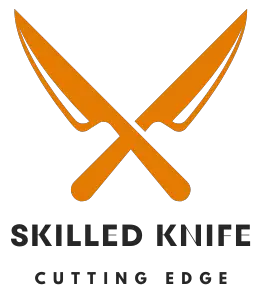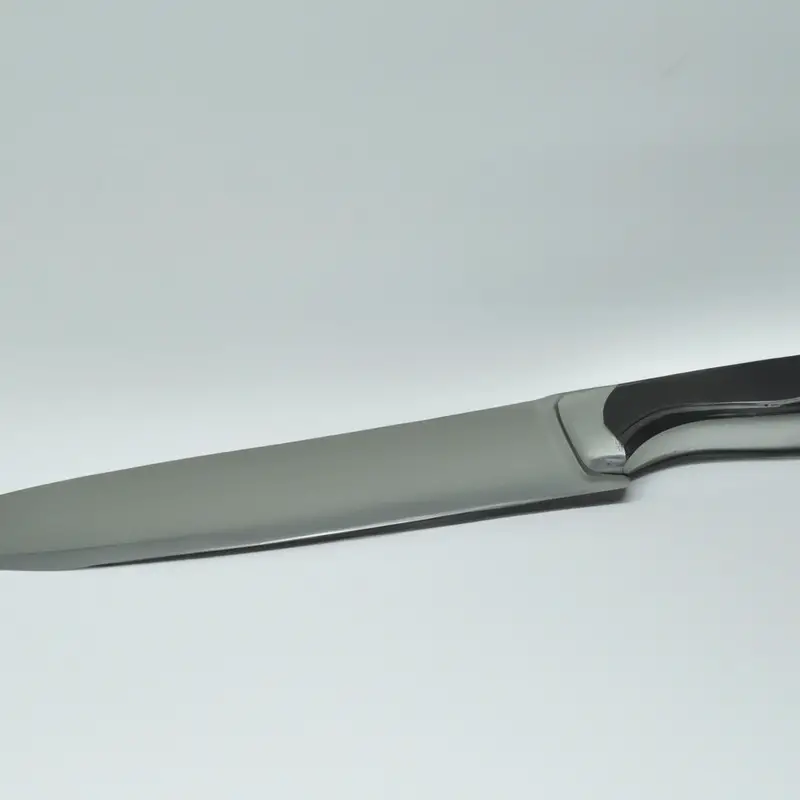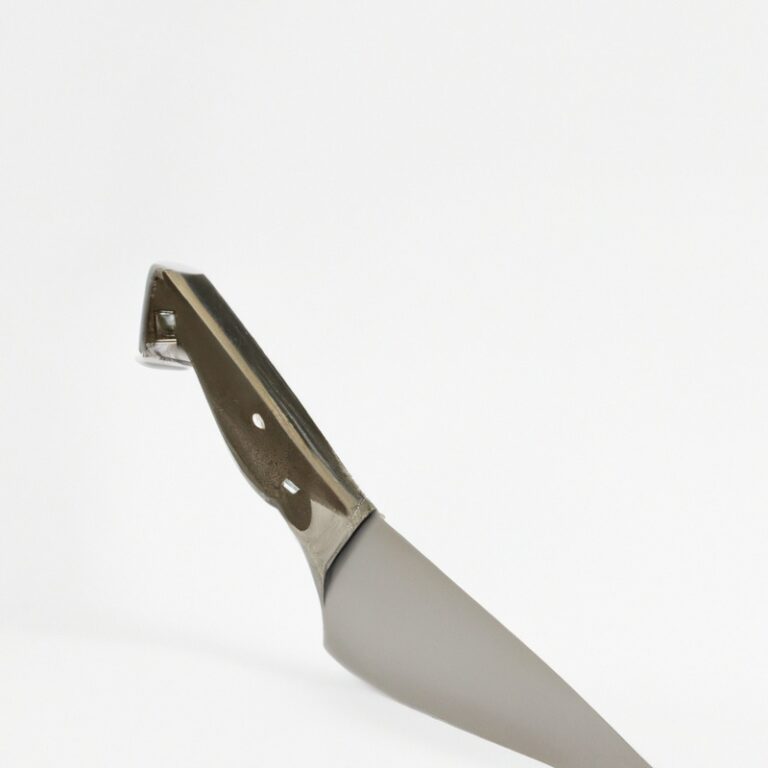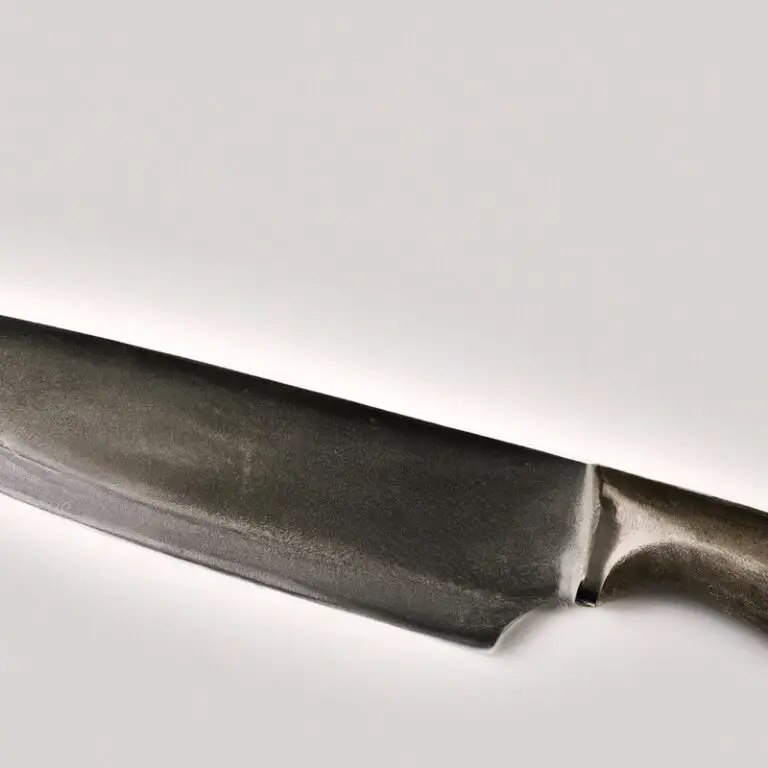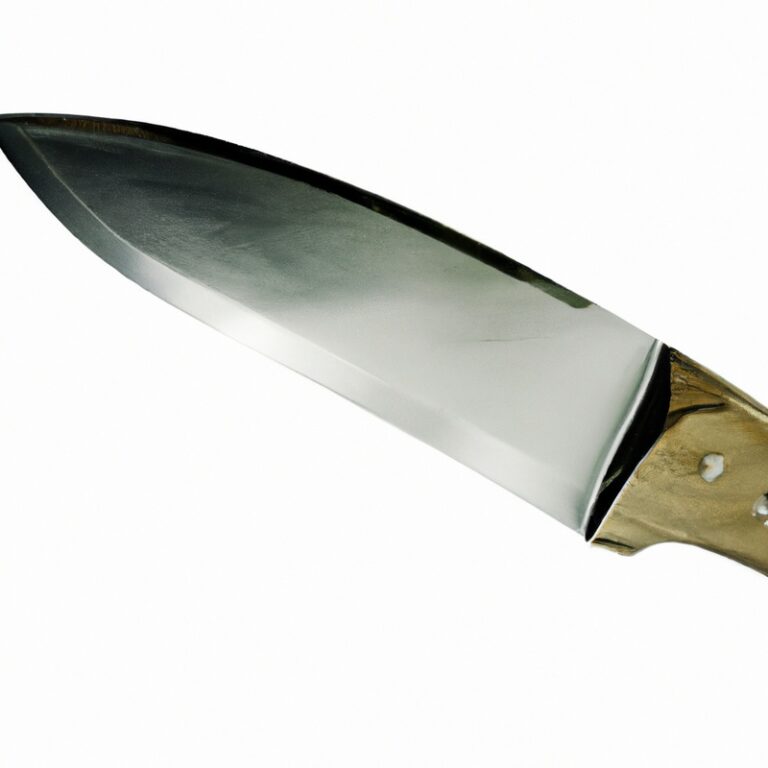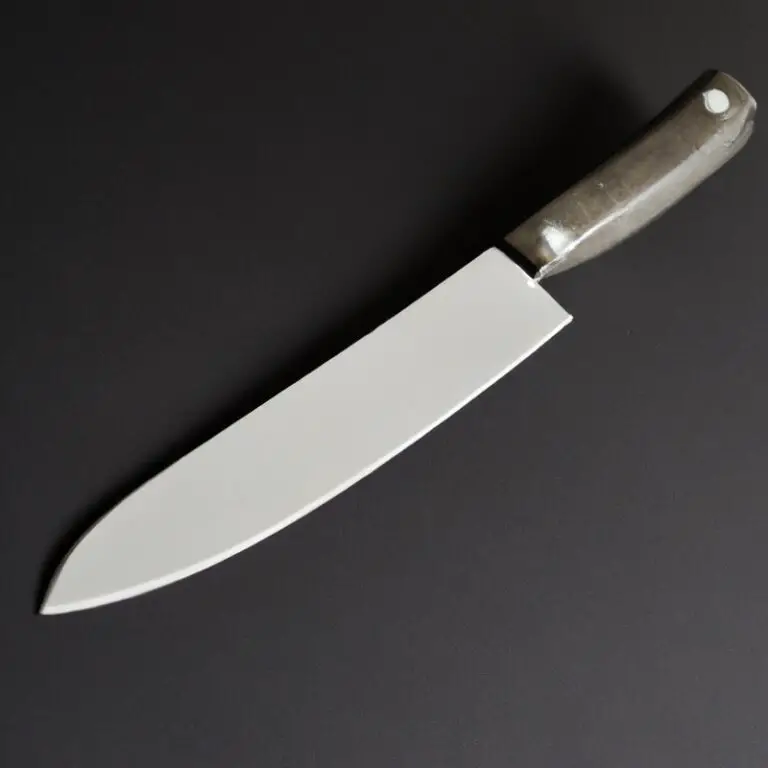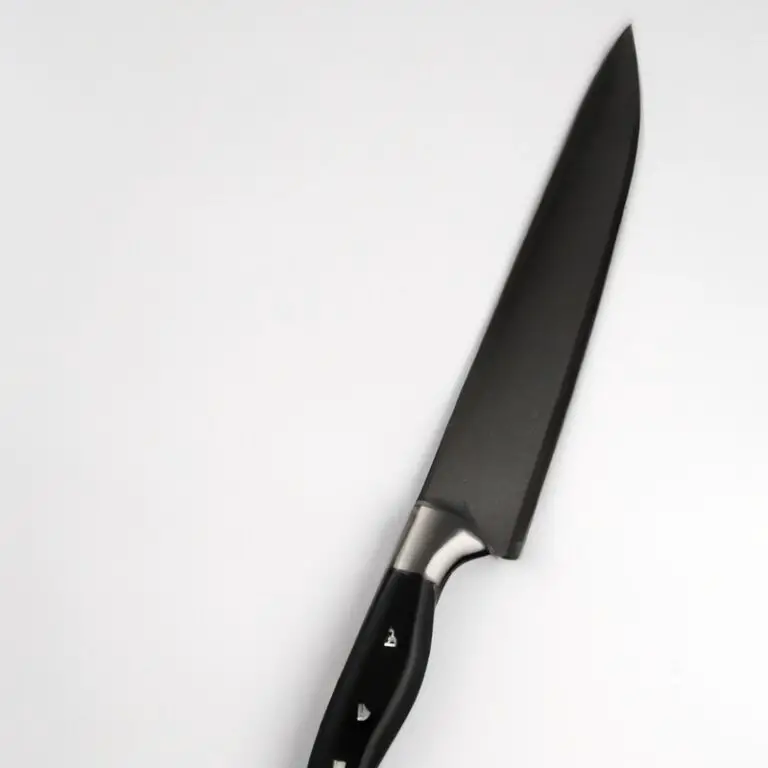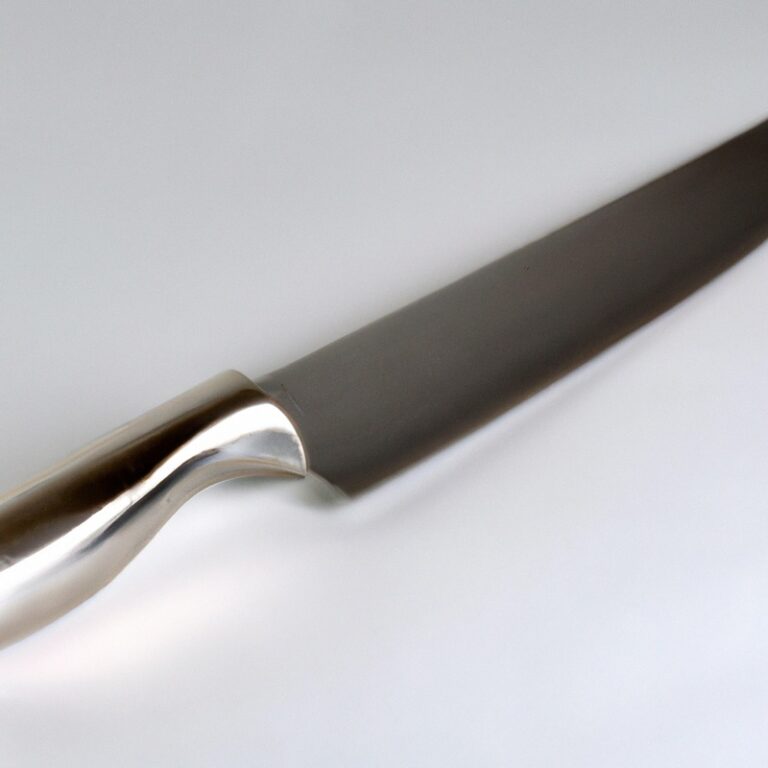Which Knife Steel Is Best For Meat Cleavers?
Key Takeaways:
- High carbon stainless steel is the best choice for meat cleavers due to its durability and rust resistance.
- The hardness level of the knife steel should be considered, with a range between 55-60 HRC being ideal for meat cleavers.
- A full tang construction provides added strength and stability, making it a crucial factor when selecting a knife steel for meat cleavers.
- Knife steels with a steeper blade angle, such as 20 degrees, work best for meat cleavers, enabling efficient slicing and chopping.
When it comes to hacking through thick cuts of meat, you need a cleaver that can handle the heat. But with so many options out there, which knife steel is truly the best?
As a seasoned chef and knife enthusiast, I’ve gone through my fair share of meat cleavers and put them to the test.
In this article, I’ll delve into the most commonly used knife steels for meat cleavers, such as high carbon steel, stainless steel, and the coveted Damascus steel. We’ll then explore the key factors to consider when choosing the perfect knife steel, including durability, edge retention, and corrosion resistance.
Finally, I’ll reveal the top contenders for the best knife steel for your meat cleaver, including X50CrMoV15, VG-10, and 9Cr18MoV.
Get ready to slice and dice with confidence!
| Steel Type | Pros | Cons |
| High Carbon Steel | Very sharp and durable | Requires regular maintenance to prevent rust |
| Stainless Steel | Resistant to rust and corrosion | Not as sharp and may require more frequent sharpening |
| Damascus Steel | Beautiful pattern and aesthetic appeal | Can be more expensive and may require more careful handling |
Types of knife steel commonly used for meat cleavers
High carbon steel
High carbon steel is a popular choice for meat cleavers due to its excellent durability and edge retention.
This type of steel contains a higher percentage of carbon, which results in a harder and stronger blade.
It is known for its ability to hold a sharp edge for a longer time, making it ideal for heavy-duty tasks such as cutting through bones and tough meat.
However, high carbon steel requires proper care and maintenance to prevent corrosion, as it is prone to rust.
Regularly oiling the blade and keeping it dry when not in use is essential.
Stainless steel
Stainless steel is a popular choice for meat cleaver blades due to its excellent combination of durability, edge retention, and corrosion resistance. It is a type of steel alloy that contains chromium, which helps to prevent rust and corrosion.
Stainless steel blades are easy to maintain and clean, making them suitable for use in the kitchen.
Additionally, they are generally more affordable compared to other knife steel options. Some commonly used stainless steel grades for meat cleavers include X50CrMoV15, VG-10, and 9Cr18MoV.
Each of these grades has its own unique properties, so it’s important to choose one based on your personal preferences and needs.
Damascus steel
Damascus steel is a popular choice for meat cleavers due to its unique aesthetics and exceptional performance.
It is known for its beautiful wave-like patterns created by layering different types of steel.
Damascus steel is highly regarded for its strength, durability, and sharpness.
It offers excellent edge retention and is resistant to chipping and cracking, making it ideal for heavy-duty tasks like meat cleaving.
Additionally, Damascus steel is corrosion-resistant, reducing the chances of rust formation.
Its combination of beauty and functionality makes Damascus steel a top choice for meat cleaver enthusiasts.
Considerations when choosing the best knife steel for meat cleavers
Durability and toughness
Durability and toughness are key qualities to consider when choosing the best knife steel for meat cleavers. You want a steel that can withstand the impact and repeated use of chopping through bones and tough cuts of meat.
High carbon steel is known for its excellent durability and toughness, making it a popular choice for meat cleavers.
Stainless steel is another option, offering good strength and resistance to corrosion. Damascus steel, while aesthetically pleasing, may not be as durable or tough as the other options.
Ultimately, the choice comes down to personal preference and specific needs in the kitchen.
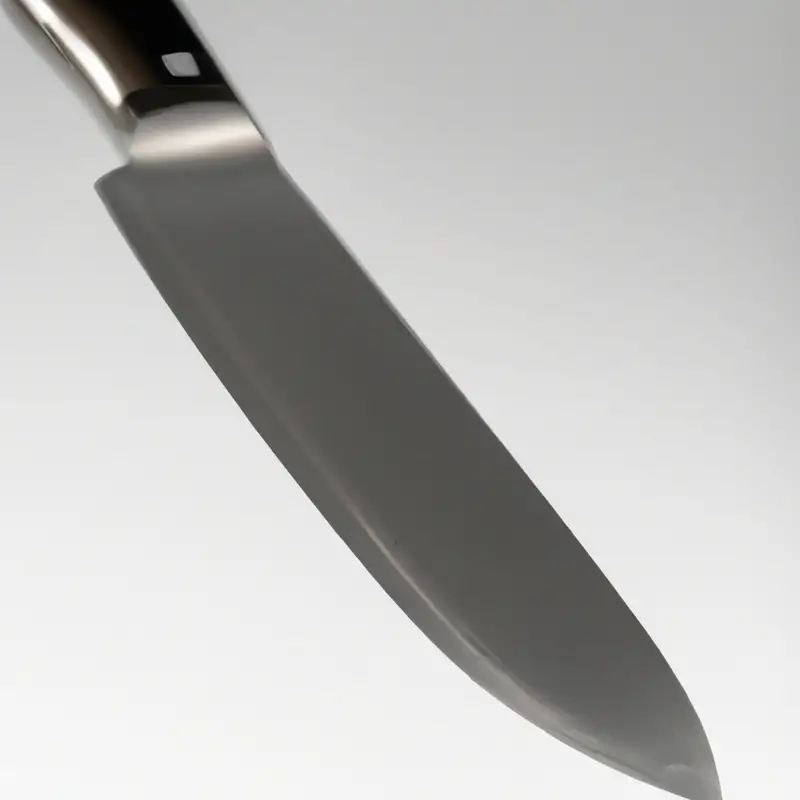
Edge retention
Edge retention is a critical factor to consider when choosing the best knife steel for meat cleavers.
It refers to how well the blade retains its sharpness over time.
High-quality knife steel with excellent edge retention means that the blade will stay sharp for longer, reducing the need for frequent sharpening.
This is especially important for meat cleavers, as they are designed for heavy-duty tasks like chopping through bones and tough cuts of meat.
Opting for knife steels like X50CrMoV15, VG-10, or 9Cr18MoV can ensure superior edge retention and a longer-lasting sharp edge for your meat cleaver.
Corrosion resistance
Corrosion resistance is an important factor to consider when choosing the best knife steel for meat cleavers. You want a steel that will not rust or deteriorate easily when exposed to moisture or acidic foods.
Stainless steel is known for its excellent corrosion resistance, making it a popular choice for meat cleavers.
Another option is Damascus steel, which also offers good corrosion resistance due to the layers of different metals. High carbon steel, while known for its superior sharpness, may require more maintenance to prevent corrosion.
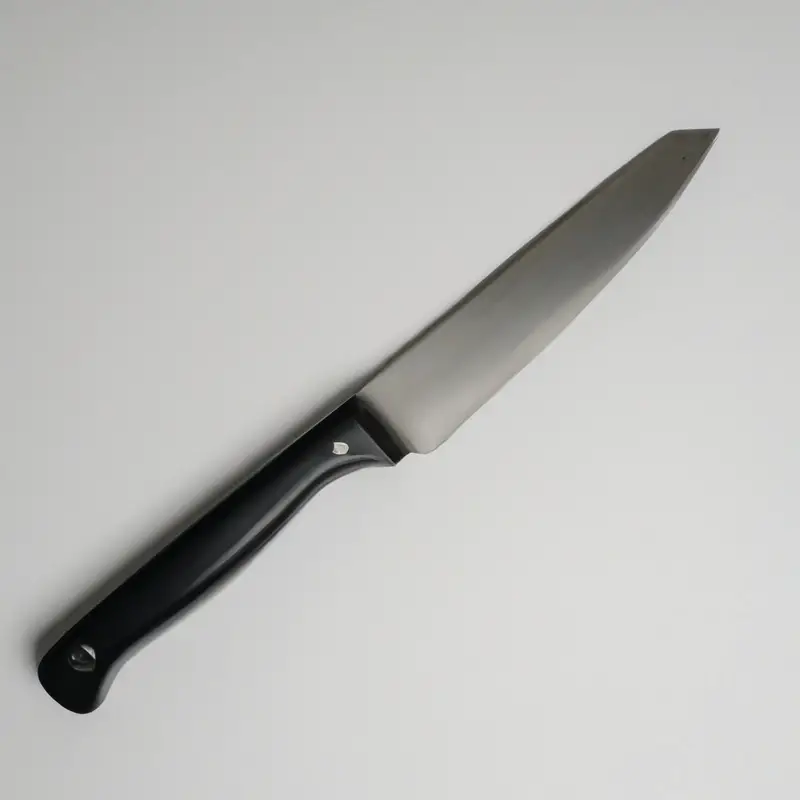
Best knife steel options for meat cleavers
X50CrMoV15
X50CrMoV15 is a popular knife steel used in making meat cleavers. This steel is known for its excellent combination of durability, hardness, and corrosion resistance.
It has a high carbon content, which gives it superb edge retention and strength.
Additionally, the presence of chromium and molybdenum enhances its corrosion resistance, making it suitable for use in kitchen environments. Overall, X50CrMoV15 is a reliable choice for meat cleavers due to its strength, longevity, and resistance to rust.
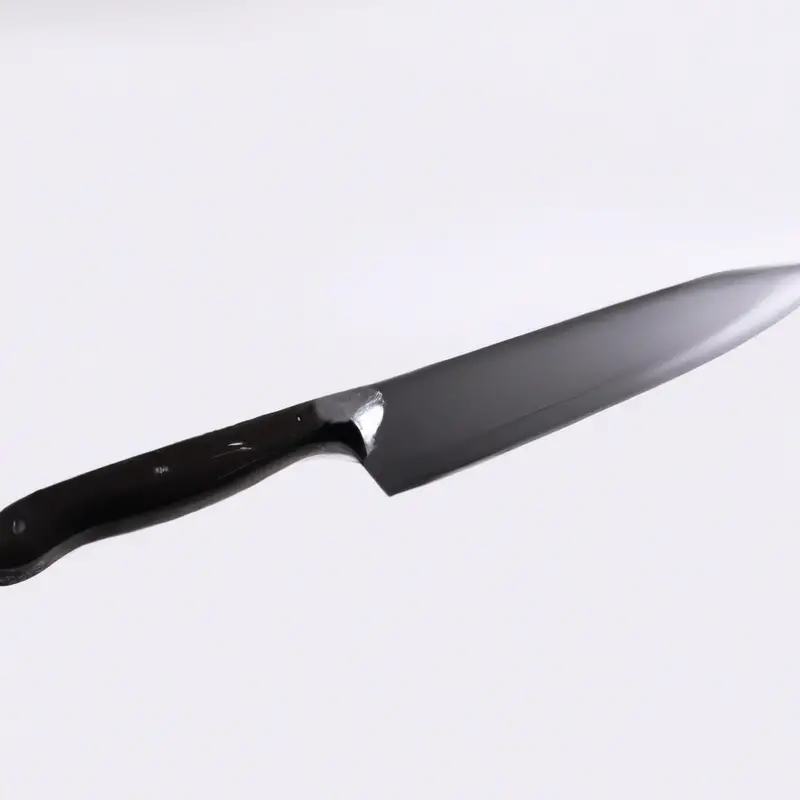
VG-10
VG-10 is a popular choice for meat cleavers due to its excellent qualities.
It is a high-quality stainless steel that is known for its superior edge retention and durability.
VG-10 is also corrosion-resistant, making it ideal for use in the kitchen.
It is easy to sharpen and maintains its sharpness for a long time.
With VG-10, you can expect a reliable and long-lasting knife that can handle any cutting task in the kitchen with ease.
9Cr18MoV
9Cr18MoV is a popular knife steel option for meat cleavers. It is a high-carbon stainless steel that offers excellent hardness, toughness, and corrosion resistance. This steel has a high level of chromium, which enhances its resistance to corrosion and staining. Additionally, it can maintain a sharp edge for a longer period of time, which is crucial for meat cleavers that need to tackle tough cuts of meat. Overall, 9Cr18MoV is a reliable and durable choice for meat cleavers.
Pros and cons of each knife steel option
X50CrMoV15: pros and cons
X50CrMoV15 is a popular knife steel option for meat cleavers.
Here are the pros and cons: Pros:
- Excellent edge retention: X50CrMoV15 is known for its ability to maintain sharpness even with heavy use, making it suitable for meat cleavers.
- Good corrosion resistance: This steel contains a fair amount of chromium, which helps protect against rust and stains.
- Easy to sharpen: X50CrMoV15 responds well to sharpening, allowing you to maintain a razor-sharp edge on your cleaver.
Cons:
- Moderate toughness: While X50CrMoV15 is durable, it is not as tough as some other knife steels. Heavy-duty tasks may be more challenging for this steel.
- Prone to chipping: Due to its composition, X50CrMoV15 can be more susceptible to chipping if used improperly, such as cutting through bone or frozen foods.
Overall, X50CrMoV15 offers excellent edge retention, good corrosion resistance, and ease of sharpening, but it may not be the best choice for extremely demanding tasks or applications that involve cutting through hard materials.
VG-10: pros and cons
VG-10 is a popular knife steel option for meat cleavers.
Its pros include excellent edge retention, which means the blade stays sharp for a long time.
VG-10 steel is also known for its high corrosion resistance, making it ideal for use in the kitchen.
Additionally, VG-10 is relatively easy to sharpen and has good toughness, allowing it to withstand heavy use.
However, it is important to note that VG-10 may be more expensive compared to other steel options.
9Cr18MoV: pros and cons
9Cr18MoV is a popular knife steel option for meat cleavers. The pros of 9Cr18MoV include its excellent corrosion resistance, making it ideal for use in high-moisture environments or when cutting acidic foods. It also has good edge retention and is relatively easy to sharpen. However, one downside is that it may not be as tough or durable as some other steel options, so it could be prone to chipping or breaking under heavy use.
Final Verdict
When it comes to choosing the best knife steel for meat cleavers, it is important to consider factors such as durability, edge retention, and corrosion resistance.
While high carbon steel offers excellent toughness, stainless steel provides good corrosion resistance.
Damascus steel combines both strength and beauty.
Among the top options are X50CrMoV15, known for its durability and edge retention, VG-10, prized for its high carbon content and corrosion resistance, and 9Cr18MoV, which offers a good balance of hardness and toughness.
Ultimately, the ideal knife steel will depend on personal preferences and specific needs in the kitchen.
As an expert, I recommend investing in high-quality knife steel that suits your requirements and enhances your overall cooking experience.
